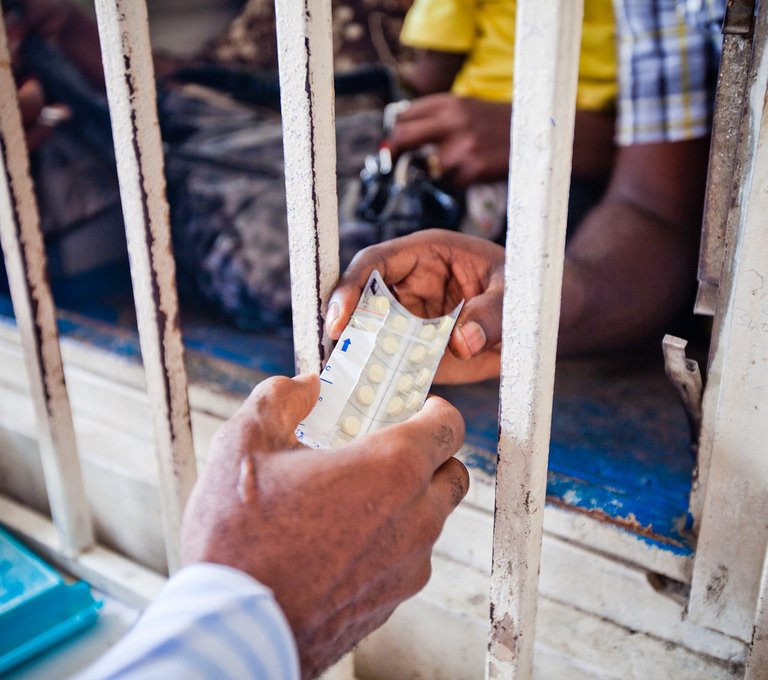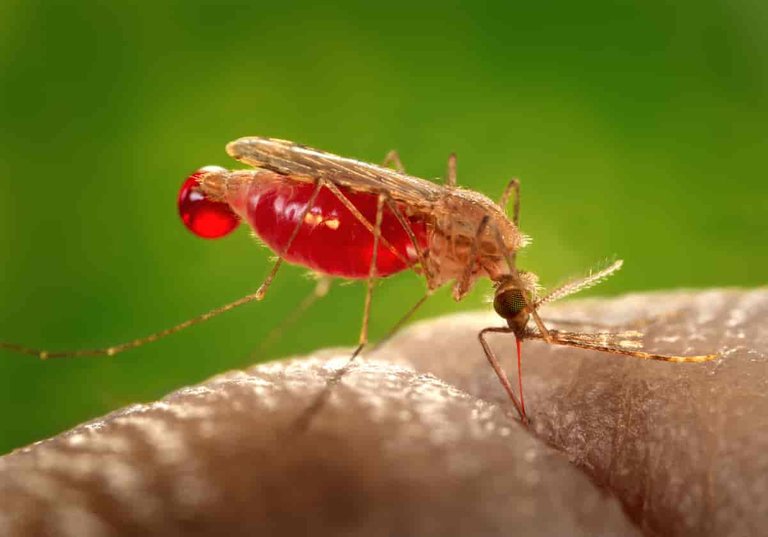Malaria free territories, and while we have countries that WHO have completely eliminated malaria, some countries still battle with it.

About a week, I was diagnosed with Malaria and Typhoid, and I was going to treat myself. First, I went to the medical centre where I was diagnosed, after which treatment began immediately. The treatment was continuous with IV fluid drips, injections, and tablets for three days. After the treatment, I still felt really sick with the symptoms continuous, so I decided to go for another test. After the test, I realized that my blood still reacted to WIDAL Agglutination test and was positive to malaria parasite. I began to mumble to myself, "I just finished a treatment yesterday, what could have gone wrong?"
Mutated Parasite and Bacteria which are Resistant to Treatment was the first thing that crossed my mind. So, I decided to further continue with the treatment, and as at the time of writing, I am still ongoing treatment, but I had the urge to look into why the Malaria fever and Typhoid I had would be resistant to drug.
Before I go into this in full, let me explain that in a country like Nigeria, the possibility of having a co-infection of Malaria and Typhoid fairly high. A journal looked into a local government in Nigeria and estimated that 35% of the individuals examined had both Malaria and Typhoid. Also, people often misconstrue the writing on the label of most anti-malaria medications in the country that says "if symptoms persist after 3 days, see your physician/doctor" as an avenue to self-medicate. An interview with 305 people in Nigeria showed that 52.1% do self-diagnose and self-medicate. While on this, let's  digress a little.
digress a little.
Malaria Being Transfer to Human
I felt the same symptoms after I had received the first treatment was what triggered me to go for another test. The symptoms include burning hot inside (temperature), sweating outside whilst feeling cold (fever), I also had little sharp abdominal pains. The retest showed both typhoid and Malaria, and looking into how both came into existence in my body is important.
Mosquito Bites shows are known to be vectors of malaria, but they aren't the cause of malaria. According to the journal; Emerging properties of malaria transmission, Mosquitoes are only responsible for the transmission of the protozoan, Plasmodium. Plasmodium vivax, Plasmodium malariae, P.Ovale and Plasmodium falciparum, are a few of the over 100 species of Plasmodium and falciparum is usually the life-threatening specie. Hilaris publisher. It is important that we know, that Plasmodium lives as a parasite in the female Anopheles Mosquito, and bite from the mosquito which transmits the protozoan causes Malaria. Frontiersin. In actual reality, the Protozoan Plasmodium actually lives on two hosts, the Female anopheles Mosquito and Human. According to the CDC, the Female Anopheles Mosquito transfers the protozoan into the human blood stream via mixing its saliva with the human blood, to prevent it from clothing.
Typhoid Getting into your Body
Caused by Salmollena typhi, which could be transferred from an infected person to another.NHS. Typhoid is a very common sickness in this part of the world, following that waters are contaminated and food can also be contaminated. Water treatment isn't something that is done regularly. People pee and throw dirt into water bodies, making it contaminated.
The bacteria move from the small intestine, into the liver, spleen and bone marrow, after which they move into the bloodstream of the human. The bacteria can be identified in stool samples because it invades the gallbladder, biliary system and the lymphatic tissue of the bowel.Webmd.
In my cases, it was responsible for the abdominal discomfort I had, it made my fever worsen, and I had poor appetite.
Wearing a Shield against the Drug Rain
When I did the second test, it became clear to me that something called resistance already occurred. One of the biggest threats to treating any disease is it becoming resistance to drugs. According to the 2014 Antimicrobial Resistance Report by the WHO, Resistance in anti-malaria drugs including artemisin, as well as other infectious diseases such as Typhoid, has been on an increase. According to research published in the Journal for Clinical Research, diseases such as Typhoid being resistance to drug, has been a huge challenge as early as in the 1960s when it was resistant to chloramphenicol. It is also no doubt that resistance of Malaria protozoan parasites to drugs have been the reason for its resurgence globally, especially in Africa. The lancet.
All the above said, I start to wonder why these diseases start to become resistant to these drugs? If I just experienced a heavy downpour of rain on my way to work and my cloth was soaked because I didn't go out with a raincoat or an umbrella, I will certainly find a way to shield myself against the rain next time, even if I have to change my skin to metal (Actually, I was just joking, I can't change my skins to metal but I hope you got the point). One of the reasons why there have been increasing rate of drug resistance is self-medication. Overusing of drugs for prophylaxis without a doctor's prescription, can lead to drug resistance. Also, incomplete treatment for active diseases can lead to drug resistance by the parasite or bacteria. The ability of the organism to adapt to different genetic and metabolic levels, while increasing at a proliferation rate, allows for resistance against drugs. NCBI
What was my case? I do not take unprescribed medications and I do not take incomplete medications, but I had to treat the same sickness twice, immediately after I finished the first treatment. I could say, it could be one of these;
- Using medication as prophylaxis (which I do not do)
Mutation in the genetics of the malaria parasite and the Typhoid bacteria (which could be a possibility),
Counterfeit or substandard treatment and medication by the hospital (which could lead to a legal suit), but after all check, the medications were original and not substandard.
Not administering the proper combination of drugs to the patient (I usually inquire to know all test, and medications being to be administered to me before I consume them)
Since I agree to the second case, then I have to be sure that I am not wrong. According to the WHO's Letter to malaria partners dated 31 March 2022. It is said that the Histidine-Rich Protein 2 (HRP2) in Plasmodium falciparum has been mutating, causing simple non-clinical test like the Rapid Diagnostic Tests (RDT) to not see the HRP2 in the blood stream of a patient, unless a lab test is done. Also,the mutation has allowed mosquitos resistance to insecticides available in the past, and drug resistance. The deletion in the antigen HRP2 is why simple test like the RDT doesn't give accurate results again, because the RDT was aimed at targeting the HRP2 to give its result. WHO 1, WHO 2
Conclusion
While the WHO is looking into having a malaria free world, it is disturbing how Malaria keeps spreading in Africa and South America with mutations which make them resistant to drugs. it becomes more disturbing when it is a coinfection with typhoid. I hope to see a world which is Malaria and Typhoid free. I will be doing more research and looking into WHO's guideline to eradicating Malaria and Typhoid and will be
That is a big problem in Africa and South America. I am from Brazil, and during COVID pandemic people overused antibiotics, even those prescribed by MDs. Now, the country faces problems with superresistant bacteria.
I guess there is also another problem, research on neglected diseases. Diseases that happen only in countries where the big pharma countries are not interested in investing. So research for diseases like Malaria, Leishmaniosis, and other parasites is very slow and happens only in labs with small financial support. I hope that you are fine right now and good article!
!1UP
Malaria, typhoid and diseases such as Polio, keeps looking like it cannot be eradicated in this continent, whereas they do not exist in western countries making it look like a propaganda when they are told money is being spent on researching these diseases. Big Pharma are concerned with making money, leaving the non-profit organization to fight the diseases with less funding. While this might be an issue, self-medication is one reason for the mutation of these organisms, making them reoccur and had to cure. Yearly, mosquitoes tend to grow resistance to insecticides that kill them in the previous year, and then the malaria protozoan, plasmodium starts to grow resistance to medication. At one point in time, chloroquine was the go to anti-malaria drug but in 2001, it became less effective for treating Malaria. pubmed
You have received a 1UP from @gwajnberg!
@stem-curator, @neoxag-curatorAnd they will bring !PIZZA 🍕 The following @oneup-cartel family members will soon upvote your post:
Learn more about our delegation service to earn daily rewards. Join the family on Discord.
Thanks for your contribution to the STEMsocial community. Feel free to join us on discord to get to know the rest of us!
Please consider delegating to the @stemsocial account (85% of the curation rewards are returned).
You may also include @stemsocial as a beneficiary of the rewards of this post to get a stronger support.
Wow. I hope that you have recovered by now. If not, I wish you a quick recovery! What is the expectation related to this resistant strain you got?
I am also wondering one thing after having read the following.
As for you, I assumed that the reasons are the same as everywhere (but for diseases/treatments unrelated to malaria and typhoid): people not completing their treatment, or using drugs in a self-medicated way. This has a global impact on the population, and thus even on people like you who follow the rules of common sense. I can easily imagine that in this case, resistant bacteria propagate more freely.